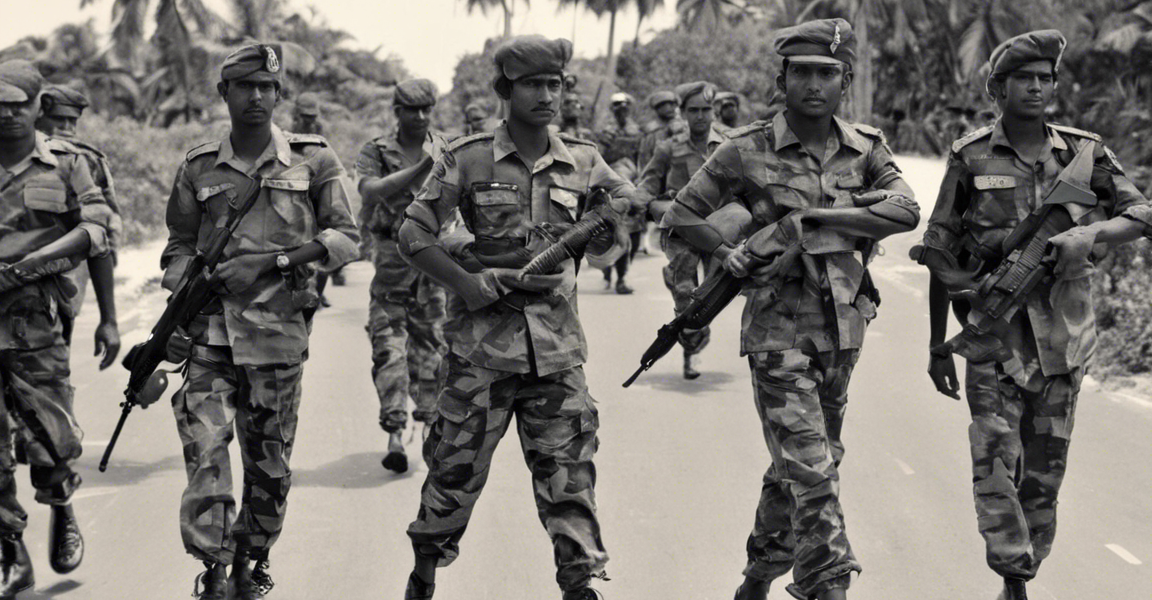India’s strategic relations with the Maldives have always been deeply intertwined due to the geographical proximity and historical ties between the two nations. As the largest democracy in the world, India has played a crucial role in preserving stability and security in the Indian Ocean region, especially in the context of the Maldives.
Historical Background
The Maldives, an archipelago of 26 atolls in the Indian Ocean, has been a key focus of India’s foreign policy due to its crucial location along major maritime routes. Over the decades, India has extended support to the Maldives in various forms, ranging from economic assistance to military cooperation.
In 1988, the Maldives faced a coup attempt by Tamil mercenaries. The then-President of the Maldives, Maumoon Abdul Gayoom, requested India for assistance. This marked the first instance of Indian military intervention in the Maldives, as India swiftly deployed troops to thwart the coup and restore order.
Military Cooperation
The Maldives and India have a robust defense cooperation framework in place. The Indian Navy regularly conducts joint patrols and maritime exercises with the Maldivian National Defence Force to enhance maritime security in the region. These joint initiatives not only help in tackling security threats like piracy and terrorism but also contribute to building the capacities of the Maldivian forces.
Humanitarian Assistance and Disaster Relief (HADR)
India has been at the forefront in providing humanitarian assistance and disaster relief to the Maldives during times of crisis. In 2004, when the Maldives was hit by a devastating tsunami, India swiftly responded by dispatching relief supplies and deploying personnel to assist in rescue and rehabilitation efforts. Such instances have not only strengthened the bond between the two nations but also underscored India‘s commitment to regional stability and welfare.
Security Concerns
The increasing influence of external actors, particularly China, in the Maldives has raised concerns for India. The Chinese government’s investments in critical infrastructure projects and its growing presence in the region have been viewed with suspicion by India. The signing of a Free Trade Agreement (FTA) between China and the Maldives has further fueled apprehensions about Beijing’s long-term strategic intentions in the region.
Challenges Ahead
While India‘s role in the Maldives has been largely positive, both nations face common challenges that need to be addressed jointly. Climate change, maritime security, and economic development are key areas where enhanced cooperation is imperative. The Maldives’ vulnerability to rising sea levels and natural disasters necessitates a collective approach towards sustainable development and environmental protection.
Conclusion
The strategic partnership between India and the Maldives is crucial for maintaining peace and stability in the Indian Ocean region. India‘s proactive engagement in the Maldives underscores its commitment to fostering bilateral ties and upholding the principles of democracy and sovereignty. As both nations navigate through the complexities of regional geopolitics, a shared vision for a secure and prosperous future will be essential in overcoming the challenges that lie ahead.
FAQs (Frequently Asked Questions)
1. What is the significance of the Maldives for India’s foreign policy?
The Maldives holds strategic importance for India due to its location in the Indian Ocean region, which is vital for maritime security and trade routes. As a close neighbor, stability in the Maldives directly impacts India‘s security interests.
2. How does India assist the Maldives during natural disasters?
India has a history of providing prompt humanitarian assistance and disaster relief to the Maldives during natural calamities. The swift response in times of need strengthens the bond between the two nations.
3. What are the major areas of defense cooperation between India and the Maldives?
Defense cooperation between India and the Maldives encompasses joint patrols, maritime exercises, and capacity-building initiatives to enhance security in the region.
4. Why is India concerned about Chinese influence in the Maldives?
India views the growing Chinese presence in the Maldives with suspicion, especially in light of Beijing’s investments in critical infrastructure projects and the signing of a Free Trade Agreement (FTA) with the Maldives.
5. How do India and the Maldives collaborate on environmental challenges?
Both nations collaborate on addressing environmental challenges, such as climate change and rising sea levels, through joint initiatives aimed at sustainable development and environmental protection.

